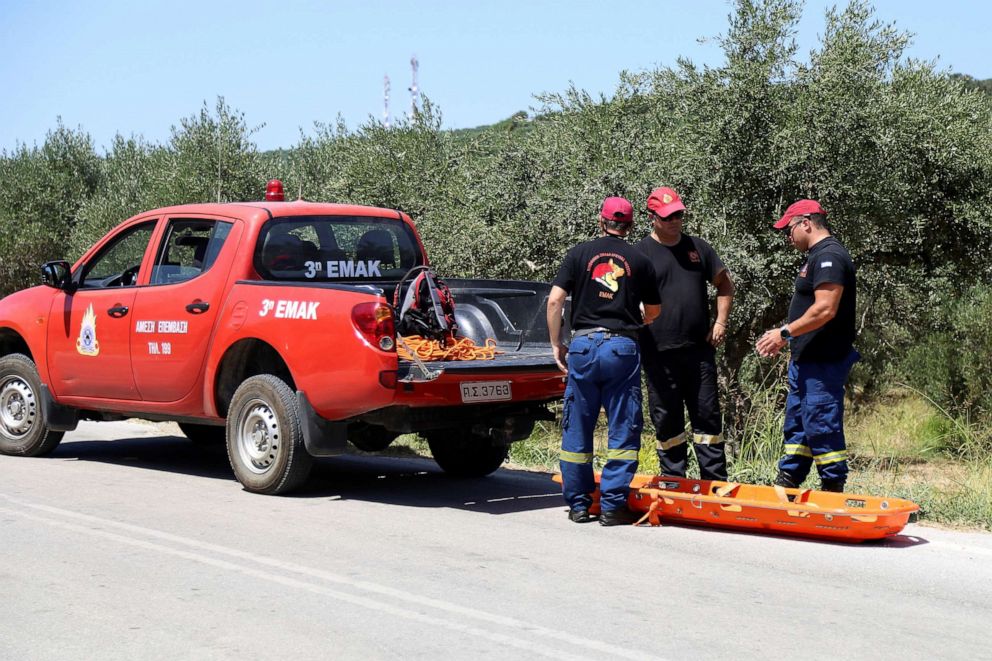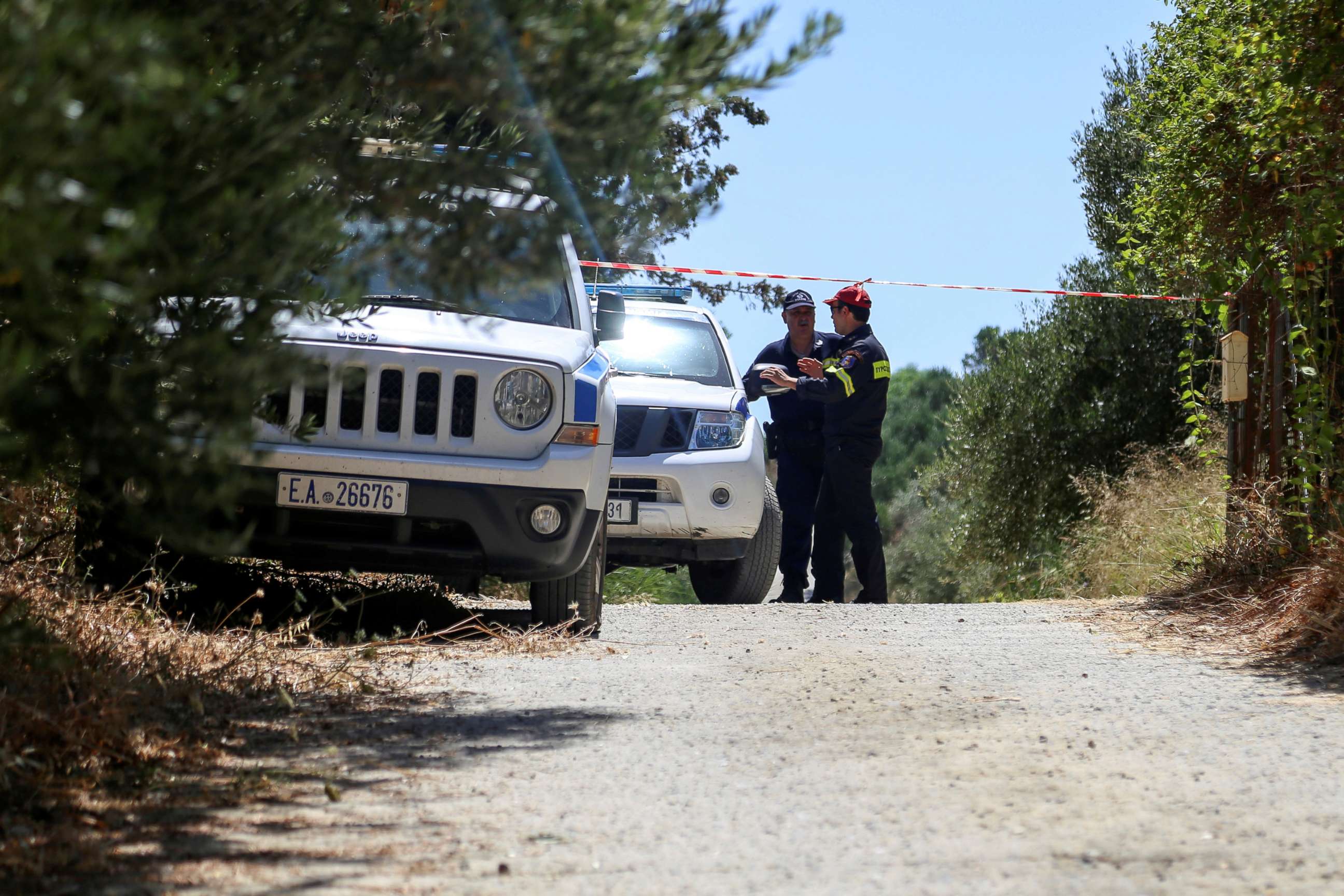American scientist murdered in Crete fought for her life, police say
Police investigating the murder say she was attacked with a knife.
Chania, Crete -- The American scientist found murdered on the Mediterranean island of Crete fought for her life against an attacker armed with a knife, according to a police source who spoke to ABC News on the condition of anonymity due to the ongoing investigation.
Evidence of Suzanne Eaton's struggle, according to the police source, is based on substantial knife wounds to her body that were discovered during a forensic examination.
The wounds were described as "defensive" in nature.

"We can securely say that this was a homicide, a criminal act," Coroner Antonis Papadomanolakis told Greece's ANT1 News. The process of identifying the body took a long time and could only be completed through the use of "forensic odontology carried out by a dentist," Papadomanolakis said.
The coroner also told a local media outlet that "something complicated happened" regarding her death.
"Her death was not immediate," he said. "It is not like in a shooting. There was duration involved."
Police investigators confirmed to ABC News that they have taken DNA samples from "at least one suspect" and possibly more.
Police sources told ABC News they have questioned at least ten people about their whereabouts on the day Eaton went missing, and said they are also looking at specific types of cars and searching for knives and other weapons that could have been used in the killing.
Eaton, who was on the island for a scientific conference, is believed to have gone for a run near her hotel nearly two weeks ago when she went missing. Police said she was found dead on Tuesday, about six miles from her hotel, by two local men exploring a network of tunnels in an abandoned bunker that had been carved out of the rock by Nazi troops during World War II.
Nikos Papaleonidas of Greece's disaster management unit said the warren of interconnecting passageways inside the bunker had been constructed by German troops to protect them from air raids.
"We arrived at the entrance of the cave escorted by the police," Papaleonidas said. "After walking through tunnels and rambling routes, we finally arrived" at Eaton's body.

Police sources tell ABC News that they are still not certain where Eaton was killed. They say they have broadened their investigation to search for farmhouses and other remote buildings where the attacker might have held Eaton before transferring her to the tunnels.
Eaton, a highly respected molecular biologist at the world-renowned Max Planck Institute in Dresden, Germany, was attending a conference in the town of Chania when she was reported missing on July 2.
The 59-year-old was described as a strong athlete and an avid runner with a black belt in Tae Kwon Do. Police sources told ABC News that they believe her killer is physically very strong, and that they are on the lookout for any suspects showing traces of recent fighting.
Coroners have finished their forensic examination of Eaton's body, and her remains have been handed over to relatives who came to the island in the wake of her disappearance, according to Crete police spokeswoman Eleni Papathanassiou.
Her remains will be returned to the United States for burial.




